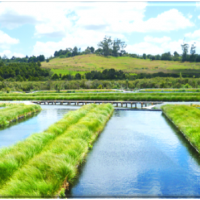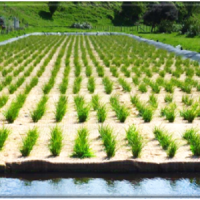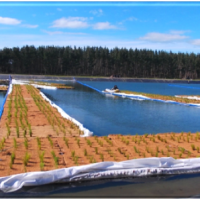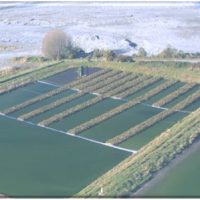PASSIVE WASTEWATER TREATMENT
THE WASTEWATER SITUATION
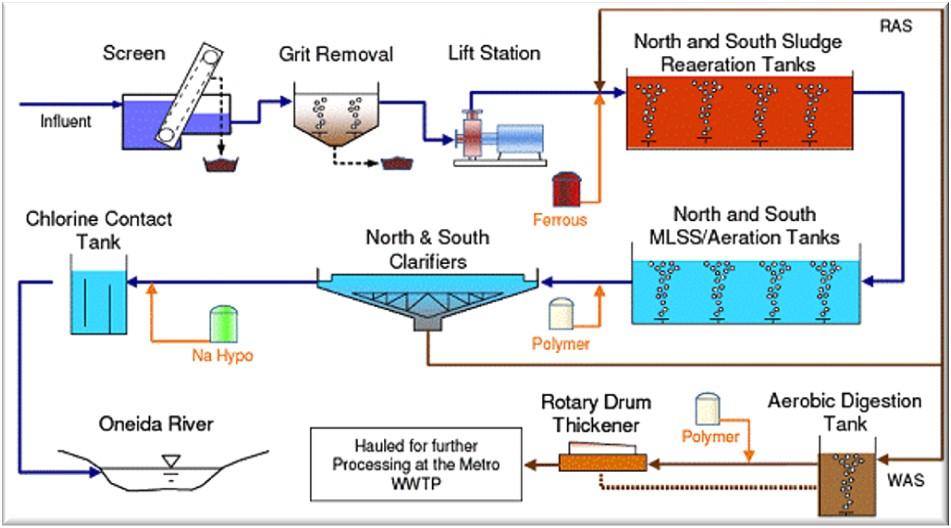
- Some 80% of municipal wwtw’s are discharging partially or untreated effluent into surrounding water sources
- Approximately 4,200ml per day
- Increasing O & M costs
- Reduced Income
- Lack of Capacity
- Rapid Urbanisation
- Overloaded Treatment Works
- Widespread Contamination
- Electrical, Mechanical Technology cannot continue to be seen as a viable solution
THE RESULT
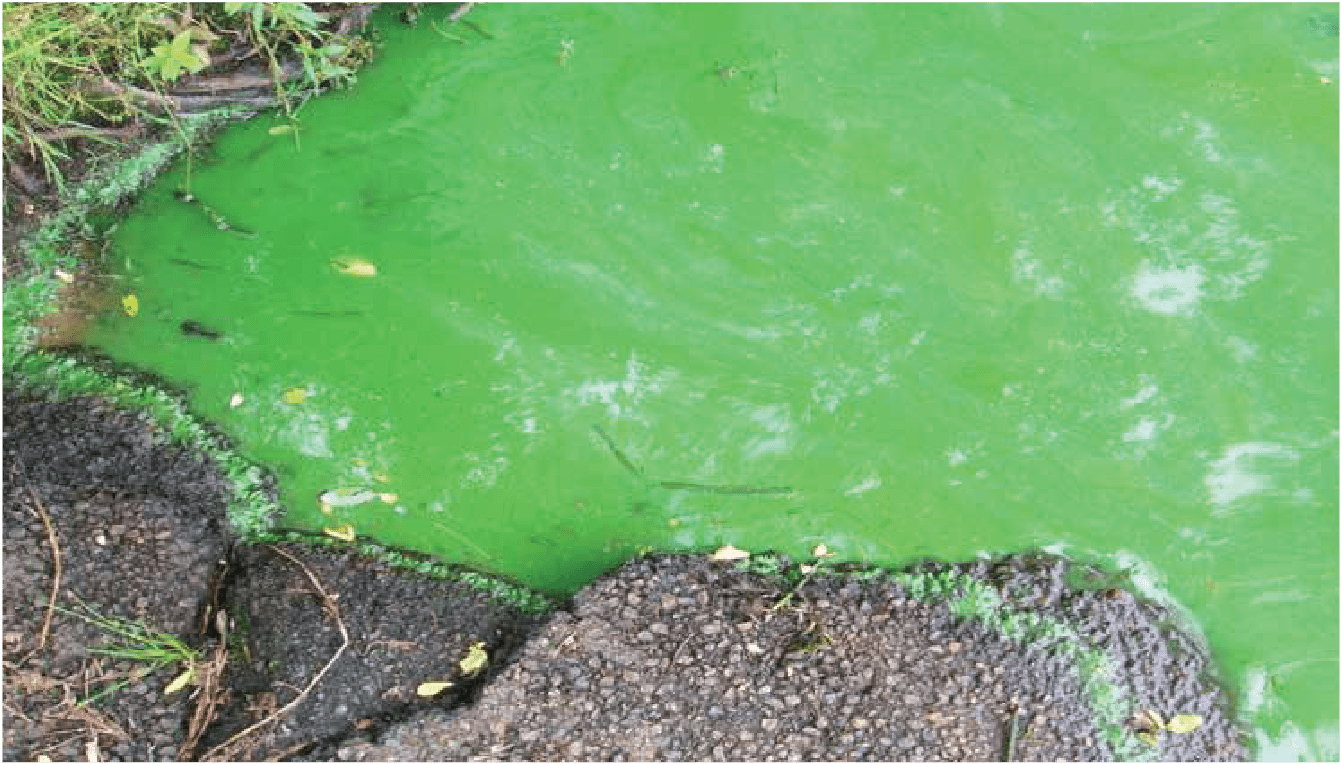
WATER A NATIONAL CRISIS
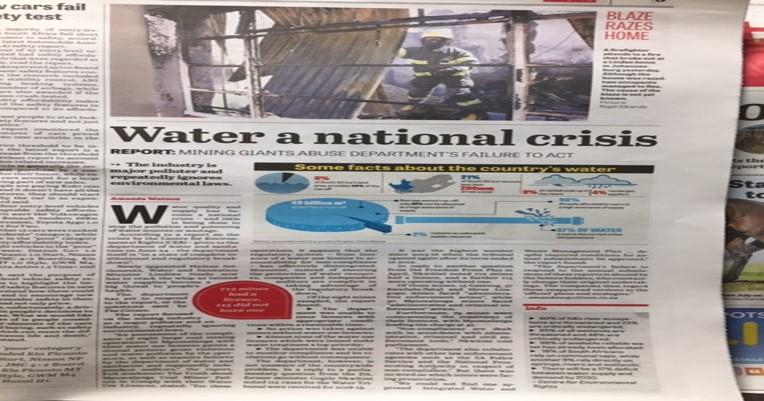
INTRODUCING THE VETIVER SYSTEM
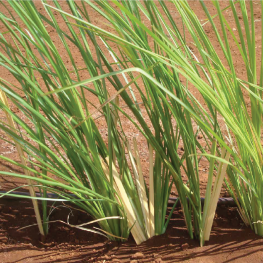
THE VETIVER GRASS TECHNOLOGY
The Vetiver Grass Technology (VGT) was first developed for soil and water conservation in farmlands. While this application still plays a vital role in agricultural lands, vetiver grass unique morphological, physiological and ecological characteristics has a key role in the area of environmental protection.
Unique morphological characteristics include a massive finely structured and deep root system capable of reaching 3-4m in the first year. In addition vetiver is tolerant to extreme climatic variation such as prolonged drought, flood, submergence and extreme temperature. It is also tolerance to wide range of soil pH, from 3.0 to 10.5, highly tolerant to soil salinity, sodicity, acidity, Aluminium and Manganese toxicities, and heavy metals such as Arsenic, Cadmium, Chromium, Nickel, Lead, Zinc, Mercury, Selenium and Copper in the soil.
In Australia vetiver has been successfully used to stabilise mining overburden and highly saline, sodic, magnesic and alkaline (pH 9.5) tailings of coal mine and highly acidic (pH 2.7) and high arsenic tailings of
gold mines.
In South Africa vetiver has been used very effectively to stabilise/rehabilitate “slimes dams”. Rehabilitation trials at de Beers diamond mine slimes dams confirms that Vetiver can survive in very harsh environments where surface temperature of the black kimberlite exceeds 55°C. Wastes and slimes dams from platinum and gold mines have also been successfully rehabilitated with Vetiver.
SPECIAL CHARACTERISTICS OF VETIVER GRASS
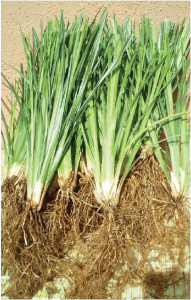
Vetiver grass grows virtually in all soils, including saline soils
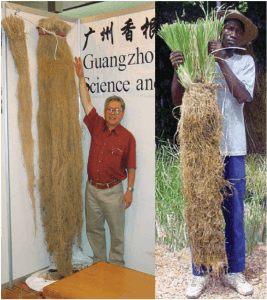
The mean design tensile strength of Vetiver roots is ± 75 Mpa – one sixth of mild steel
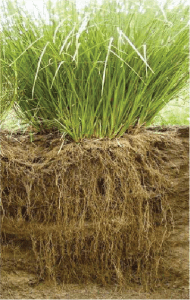
An extremely deep & massive finely structured root system
VETIVER ADVANTAGES
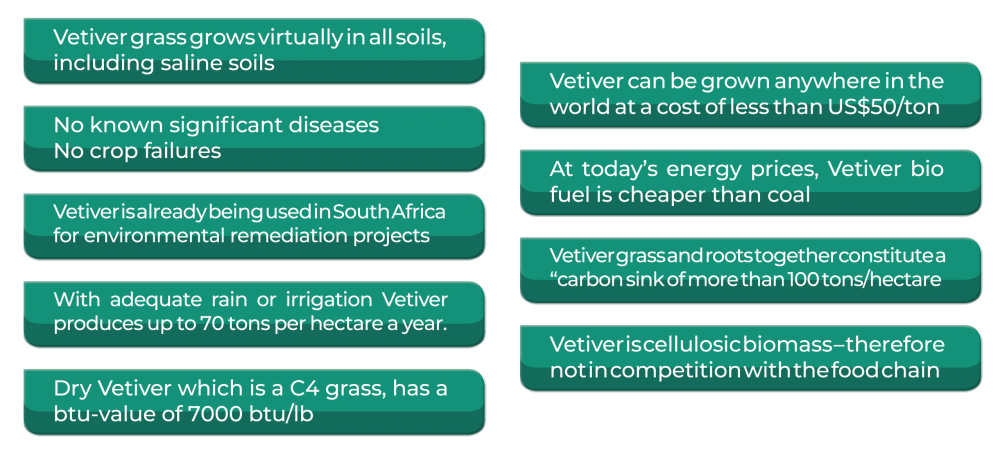
VETIVER PASSIVE WASTEWATER TREATMENT WORKS
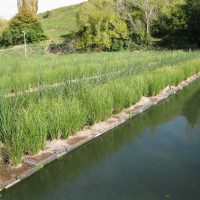
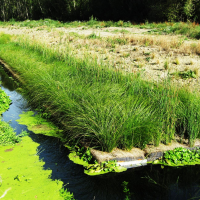
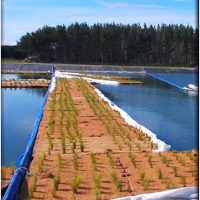
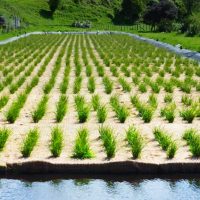
VETIVER FLOATING TREATMENT WETLAND (VFTW)
VFTW has a remarkably high effect on:
- Anaerobic Digestion
- De-Nitrification & Polishing
- Reduction in Fecal Coliforms
- Odour Mitigation
- Reduction in Bio-Chemical Oxygen Demand
- Reduction in Phosphorus
- Nitrification and Denitrification Processes
- Removal of TSS
- pH Stabilisation
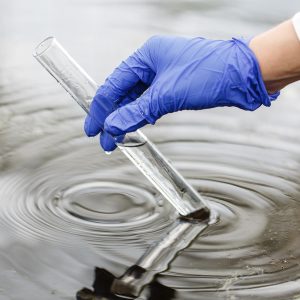
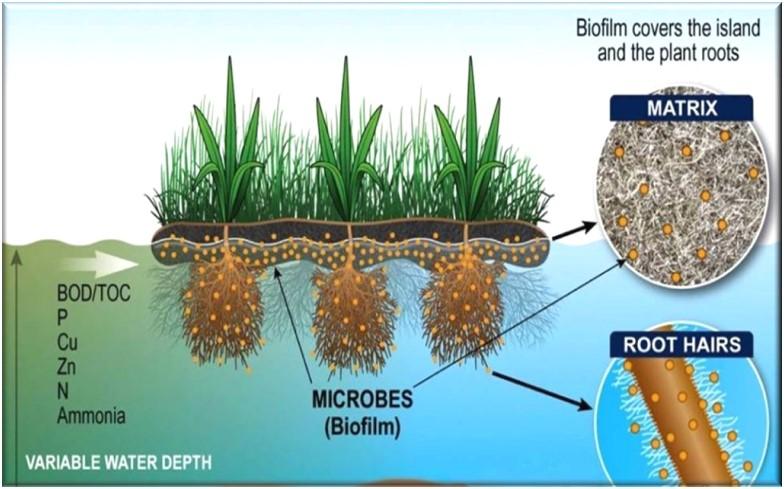
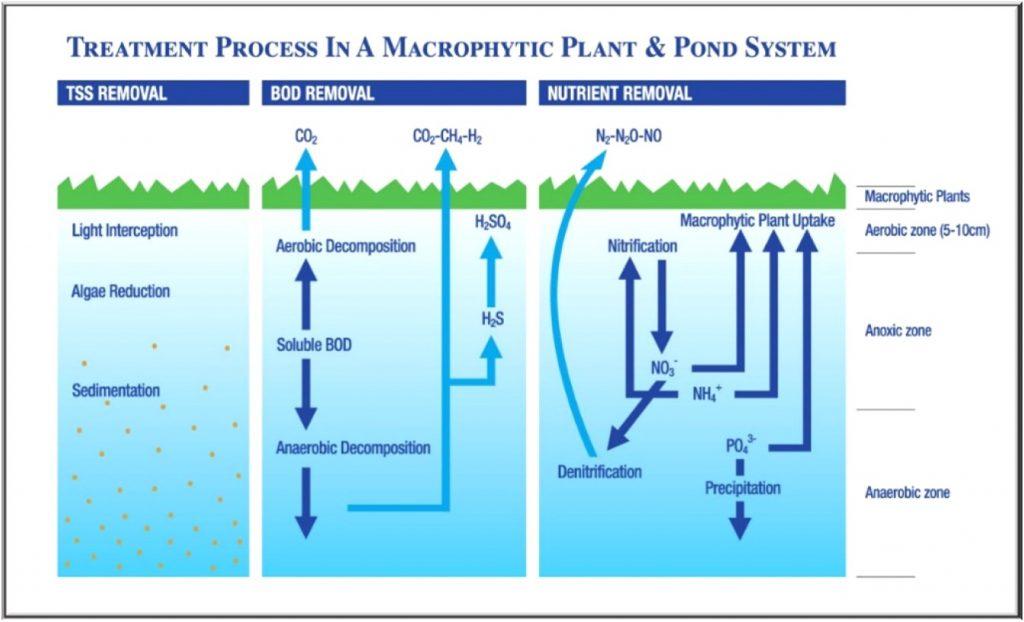
WIN-SA MAY 2014: KNP CHOOSES GREEN TECHNOLOGY FOR A GREEN SOLUTION
THE REPORT CONCLUDES:
- “Ponds Systems are cheaper than activated sludge systems and easier to maintain. Ponds require staff of a lower technical skills level that activated sludge systems, and no operators are required full time on-site to operate these plants.”
- “Despite the mistrust of many Civil Engineers and Water Authorities, constructed wetlands have been widely accepted around the World and have become a suitable and appropriate solution for Wastewater Treatment.”
“Unfortunately knowledge of ponds is very limited in South Africa. Many Municipal Wastewater Managers do not understand the Technology and hence feel uncomfortable to take decisions in the regard.”
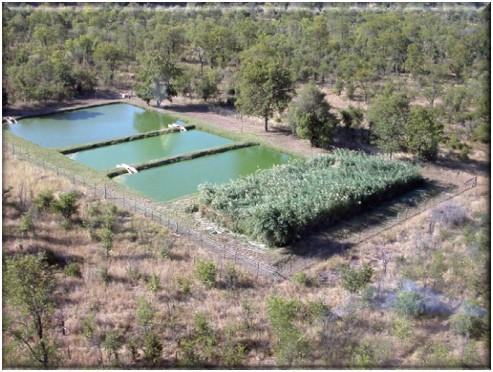
PASSIVE WASTEWATER TREATMENT WORKS
